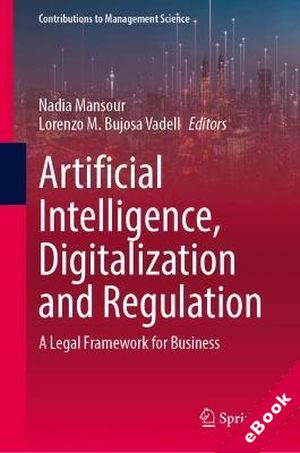
The device(s) you use to access the eBook content must be authorized with an Adobe ID before you download the product otherwise it will fail to register correctly.
For further information see https://www.wildy.com/ebook-formats
Once the order is confirmed an automated e-mail will be sent to you to allow you to download the eBook.
All eBooks are supplied firm sale and cannot be returned. If you believe there is a fault with your eBook then contact us on ebooks@wildy.com and we will help in resolving the issue. This does not affect your statutory rights.
This edited volume explores the relationship between Artificial intelligence (AI), business performance, and regulation. Artificial intelligence allows entrepreneurs to create universally transferable platforms and customers to find the offer they want. Indeed, AI is an excellent tool for competitiveness and innovation. It can contribute to a positive business performance by reducing costs, analyzing and exploiting data, optimizing marketing strategy and advertising targeting, and improving the customer experience. However, Artificial intelligence can also generate threats such as disinformation, manipulation, and false content. Companies are increasingly becoming obliged to take security measures to protect digital data against cyber-attacks and data leaks.
This volume presents concepts and solutions for companies aiming not only to benefit from the newest technological developments in AI but also interested in tackling the challenges that come with the use of these technologies.